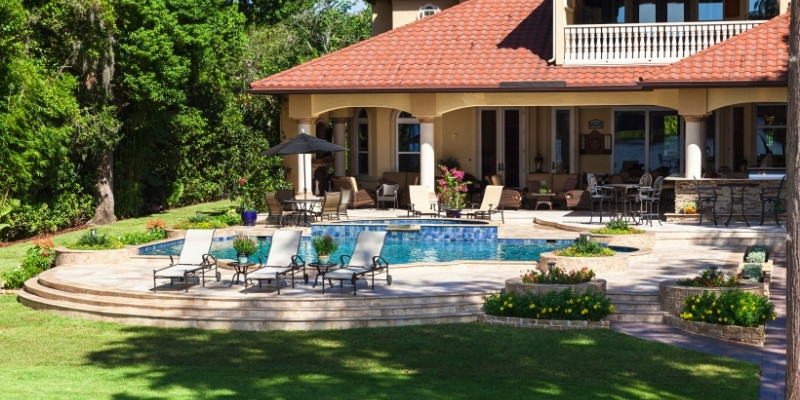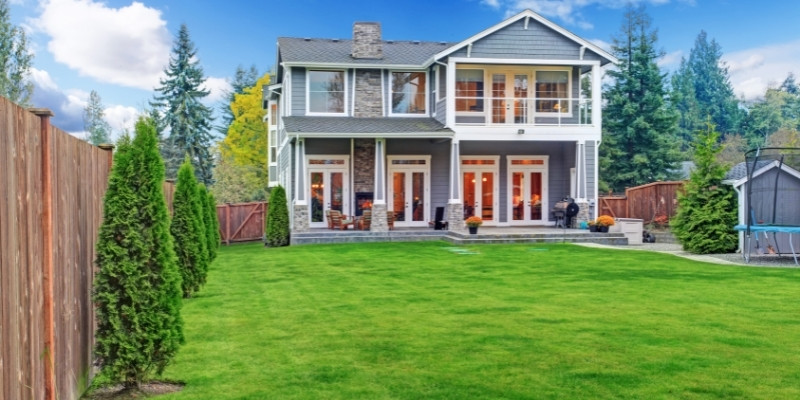What an ADU Can Mean for You
If you're looking for a new home, having a bonus structure to use as an in-law suite, rental property, or office can be a very appealing feature. Although having an ADU (Accessory Dwelling Unit) can sound promising, figuring out how to adequately code and maintain your ADU is not easy. Additionally, there are some things you might want to consider when buying a house/property that has one.
Some ADU advocates argue that ADUs help solve societal problems while offering manageable, creative, and affordable ways to live compared to a traditional home. However, these advocates also have a lot to say about making sure your ADU is in compliance with your local ordinances: Here's what they want you to know whether you're thinking about building an ADU or buying a property that already has one.

What is an ADU (Accessory Dwelling Unit)?
An ADU is an Accessory Dwelling Unit; these ADUs have very specific definitions based on local ordinances that are in charge of governing these structures. Kol Peterson, author of Backdoor Revolution: The Definitive Guide to ADU Development, says planning and zoning officials across the country use the term "accessory dwelling unit" for distinct, standalone additional dwelling units on a primary residential property. Boiled down means you have everything a house would have, including a kitchen, bathroom, bedroom, or living area separate from the primary dwelling.
Author Sheri Koones, whose book "Bigger Than Tiny, Smaller Than Average" focuses on ADUs, says they were first popular in Canada and are often called laneway houses. Koones says that a lot of people confuse small homes or ADUs with tiny houses. While both are small, the latter is like a mobile home that is not code-compliant nor has sewage or running water.
The term "accessory dwelling unit" is the official one for units that meet local standards. In your area, that might include any standalone structure with plumbing and electricity. It could also include basement apartments with full kitchens, separate entrances, and designated off-street parking spaces or an apartment over your home's garage.
Understanding the distinctions between these terms is important if you're considering purchasing a property with an ADU. You may read a listing that indicates a home has a guest house; however, whether or not it's permitted is another story, and that's where these definitions become crucial.
Permitting Your ADU the Right Way
It is possible that your ADU was built with permits from the local city government, but those permits might not be enough for the city to recognize it as an ADU. For example, you may have paid someone licensed by the city to install a bathroom in your backyard guesthouse, but if your mother-in-law lives there full time, the city may not be aware of this.
Peterson says that many areas will require ADU owners to have an inspector come out to verify their unit meets the required standards. He adds that once approved; property taxes may be reassessed. Peterson says, "Let's say you add an addition to your home of 500 square feet. The county assessor will come to the property and assess the value of that addition to the overall value of your home, which increases your property tax bill."
When purchasing a property with an ADU, be sure to ask your real estate agent whether the proper permits were pulled for the work. Additionally, you can check tax documents to see whether the structure is accounted for as an ADU (Accessory Dwelling Unit) rather than something like a garage or shed. The term "ADU" is defined by cities and counties, so it's also possible that you'll find other terms used in some areas.
There are a lot of possible benefits to building an ADU on your property, but the biggest drawback is that you may not be able to use it in the way you intended. Peterson says that the worst thing that could happen to you with an ADU on your property is that you don't have to use it as intended, and the best thing that could happen is that you can decide to use the ADU for different purposes. Peterson points out some uses, for example, some families used ADUs during the pandemic as homeschooling rooms for children, and some rent out the unit to supplement their income for a few years, and later allow their in-laws to move in.
If you're unsure about the status of your property, Peterson's site, Accessory Dwellings, has a database of ADU laws and ordinances by state. You can find the link at the end of this article.

Costs Associated with ADUs
Peterson says there are some additional costs associated with owning a property that has an ADU. The biggest one is that you'll need to have the ADU insured under your current policy. This typically can be done, but your policy will have to specifically address insurance for that structure on its own. If you rent your ADU out on a short-term basis to visitors, you might also have to pay a tourism tax. This all depends on your local government.
While adding an ADU to your property may make it more valuable, it most likely means you will pay higher property taxes. Make sure to ask your real estate agent to check the tax records for comparable properties in the area and see how much this is likely to be.
Additionally, if you find out your ADU isn't up to code, you might need to do some renovations. For example, you might have to replace your kitchen stove with a hotplate if your city's codes don't allow for full kitchens in ADUs. Other scenarios can be more complicated; you would have to limit the use of your ADU if the space doesn't have its own entrance or off-street parking.
Although the city will probably require you to make changes to your ADU, the changes shouldn't be too drastic. For example, if you are renting out the second unit, you may need to remove a tenant or stop offering short-term rentals. But you can still use the space for yourself.
ADU (Accessory Dwelling Unit) Benefits
According to a 2021 survey by the AARP, while just 4% of adults surveyed had an ADU on their property, 26% would consider adding one to solve the problem of housing for older Americans.
Koones says that ADUs can be good options for seniors who aren't yet ready to move into a retirement community because these homes are low-maintenance and affordable, and they can benefit the broader community, too. "ADUs can provide additional density without the need for large buildings, which can alter the character of the area," Koones says. "ADUs are a win-win for society because there's a shortage of housing."
If you're still hesitant about purchasing a house with an ADU, talk to your real estate agent. Dodd, a Manager at Sundae Design Group, recommends checking if studios or one-bedroom apartments in your neighborhood are desirable before buying an ADU. If you live in a city that is short on rental housing, an ADU can be an excellent investment and if you decide to sell your property, an ADU will almost always add value.
If you choose to build an ADU, you can also use it as a rental property. Peterson built an ADU on his lot about ten years ago and began using it as his home while he rented out the main residence to tenants. In around four years, he had paid off the mortgage on the entire property and was turning a profit. "People want to give back to the community in a way that's affordable," Peterson says. "You're accomplishing selfish goals while contributing to societal goals.".
To get started building your ADU, research guidelines and requirements in your area. The ADU of your dreams might be within reach.
Sources & Helpful Links:
https://www.bhg.com/home-improvement/remodeling/additions/adu-accessory-dwelling-units/
https://accessorydwellings.org/author/kolpeterson/
https://www.bhg.com/home-improvement/advice/expert-advice/adu-costs/
https://accessorydwellings.org/adu-regulations-by-state/
https://www.aarp.org/research/topics/community/info-2021/2021-home-community-preferences.html
GET IN TOUCH WITH OUR TEAM OF PROFESSIONALS
Let us guide you through the selling process and walk you through our partnership program if you're looking to invest with our team.


